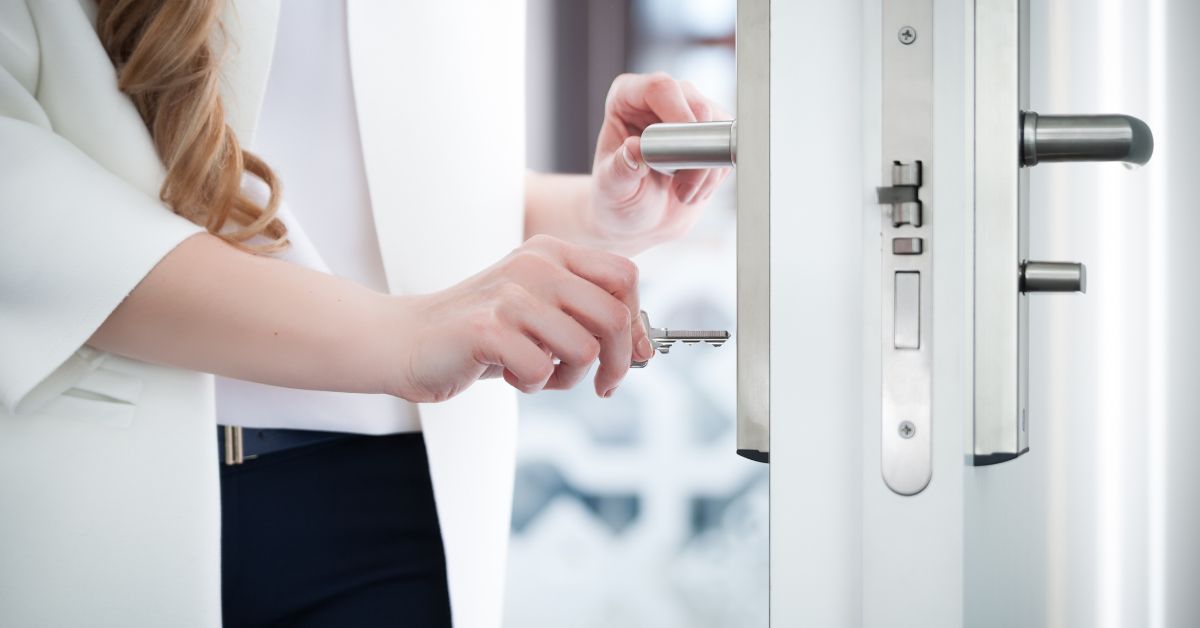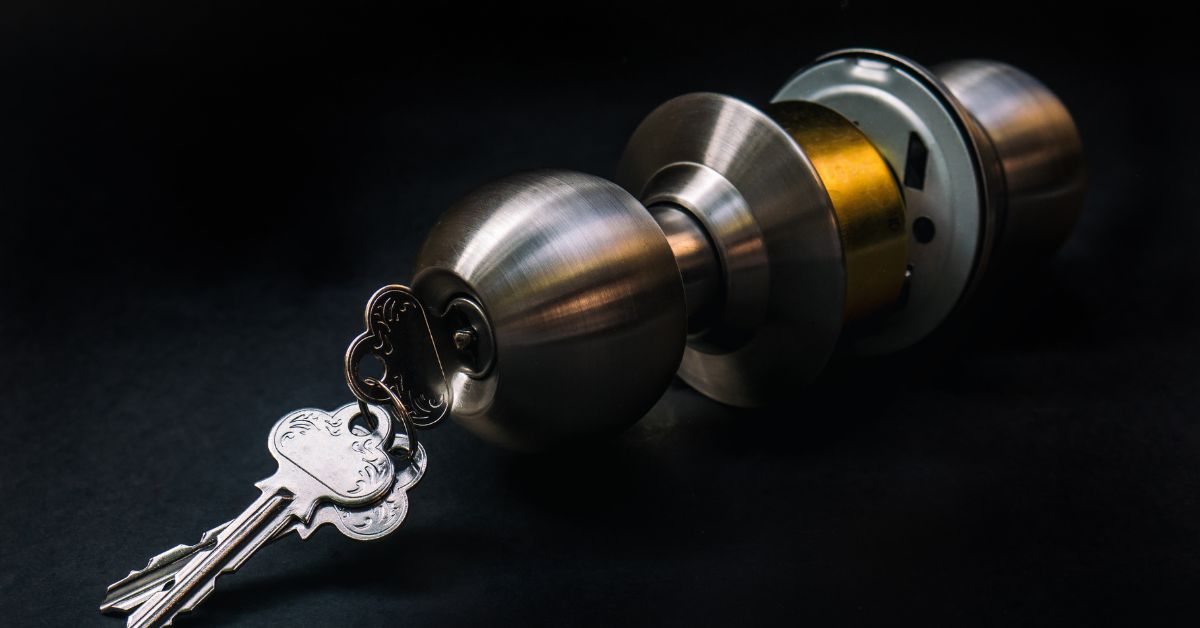The Differences Between Cylindrical and Mortise Locks

Understanding Cylindrical and Mortise Locks
Cylindrical locks have transformed security with their innovative and straightforward design. These locks incorporate a cylinder, latch bolt, and keyway, making them great for various applications. The ease of use and quick installation make cylindrical locks a go-to solution for securing doors, especially in commercial settings.
Business owners appreciate the simplicity and reliability of cylindrical locks, which grant access control without compromising security. These locks are available in numerous finishes to suit different aesthetic preferences and operational needs.
Conversely, mortise locks bring a rich heritage and exceptional durability to the table. They feature a strong design that includes a mortise body, lock trim, strike plate, and cylinder.
They excel in high-traffic environments requiring enhanced security, such as institutional buildings and hotels. The construction of mortise locks provides superior resistance to forced entry, offering peace of mind to those who prioritize security. Beyond their strength, mortise locks offer aesthetic flexibility and a wide range of functional options, enhancing both security and style.
Historical Context and Evolution
The journey of cylindrical locks began in the early 20th century when innovators sought to create locks that offered simplicity and reliability. This vision quickly turned cylindrical locks into indispensable tools in both residential and commercial settings. People embraced their straightforward design, which provided ease of use without sacrificing security.
As the digital age unfolded, cylindrical locks transformed with the addition of keyless entry systems and smart lock capabilities. These changes catered to the rising demand for convenience and advanced security, ensuring that cylindrical locks continued to play a role in modern security applications.
Mortise locks, on the other hand, boast a rich history stretching back several centuries. Crafted for exceptional strength and durability, they earned a reputation for high-security applications. Over time, locksmiths responded to the evolving security landscape through continuous innovation.
The integration of electronic access systems allowed mortise locks to maintain mechanical strength while adopting modern technologies. This innovation ensured that mortise locks met the demands of contemporary security.
Comparing Security Features
Cylindrical locks offer security features, yet certain vulnerabilities remain. Their design may allow for forced entry, making them more suitable for areas with lower security needs. In contrast, mortise locks have advanced features that enhance protection.
With anti-tampering mechanisms and reinforced components, mortise locks can prevent unauthorized access. They consistently outperform cylindrical locks in terms of resilience and reliability.

Advanced Security Technologies
Manufacturers add security by incorporating technology into lock systems. Cylindrical locks now include options such as electronic keypads and biometric access, enhancing their versatility in modern environments.
Mortise locks, while traditionally mechanical, can also work with smart technologies. For instance, remote monitoring and building management system integration increase their appeal.
Durability and Longevity
With regular care, cylindrical locks can have a long lifespan. Regular maintenance, such as lubrication and checking for wear, keeps these locks in good condition. Environmental conditions—humidity and temperature fluctuations—along with the frequency of use can affect their durability.
In contrast, mortise locks stand out for their impressive longevity and durability despite environmental conditions and heavy use. The difference between cylindrical and mortise locks is primarily in their construction and resilience; mortise locks generally provide a better locking solution for reliability.
By assessing these factors, you can determine the most suitable lock for your needs and keep your security solutions effective over time.
Material and Build Quality
The lock’s materials affect its durability and performance. Cylindrical locks incorporate materials such as stainless steel or brass, offering a balanced resistance to wear and corrosion. These locks are suitable for moderate usage settings. However, mortise locks are better for higher security demands due to their heavy-duty materials.
Mortise locks have exceptional endurance against physical stress and environmental conditions. As a result, they are ideal for high-traffic and high-security areas.
Suitability for Different Building Types
Each building has unique security needs, so you’ll need to determine the best choice between cylindrical and mortise locks. Here's a quick guide to their suitability across various environments:
- Cylindrical locks excel in retail and office settings, offering ease of use and reliable security. Their straightforward installation supports the fast-paced nature of these business environments.
- Mortise locks stand out in hotels, supporting guest safety and smooth access. Their sturdy construction meets the hospitality industry's need for high security and convenience.
- Both lock types serve schools, depending on the requirements of the institution. Cylindrical locks work well for general access, while mortise locks secure vulnerable areas, balancing safety and functionality.
- Mortise locks suit public buildings with high-security demands. Their resilient design controls access, providing peace of mind in public environments.

Installation Processes
Installing cylindrical locks is pretty straightforward, so you might not need professional assistance. You can fit them quickly, saving time and energy—a big plus for busy business professionals!
On the flip side, mortise locks require a bit more work. Installation requires taking precise measurements and knowing the inner workings of the lock system, which can make the installation take longer. Still, the extra effort leads to a secure fit and a functional lock.
Installation Considerations
When deciding between cylindrical and mortise locks, consider what the installation involves and any disruptions it might cause your commercial space. Cylindrical locks are less invasive, so they're great when you need to stick to tight schedules or avoid downtime.
Installing mortise locks is more involved and requires more prep work, so you might need professional help. This is especially important when you want to keep things running smoothly. After considering these factors, you can choose a lock that matches your security needs and logistical constraints.
Conclusion
Cylindrical locks deliver convenience and ease, while a mortise lock is a great heavy-duty door lock that offers superior security and durability. Assessing your building's needs and security priorities guides you in selecting the most suitable lock.
Staying up to date with advancements in lock technology keeps your premises safe. Choose locks that align with your security objectives and operational demands to guarantee protection for your facilities.

Author
Michael Rega
Chief Marketing Officer and founding Member of DoorHub.com